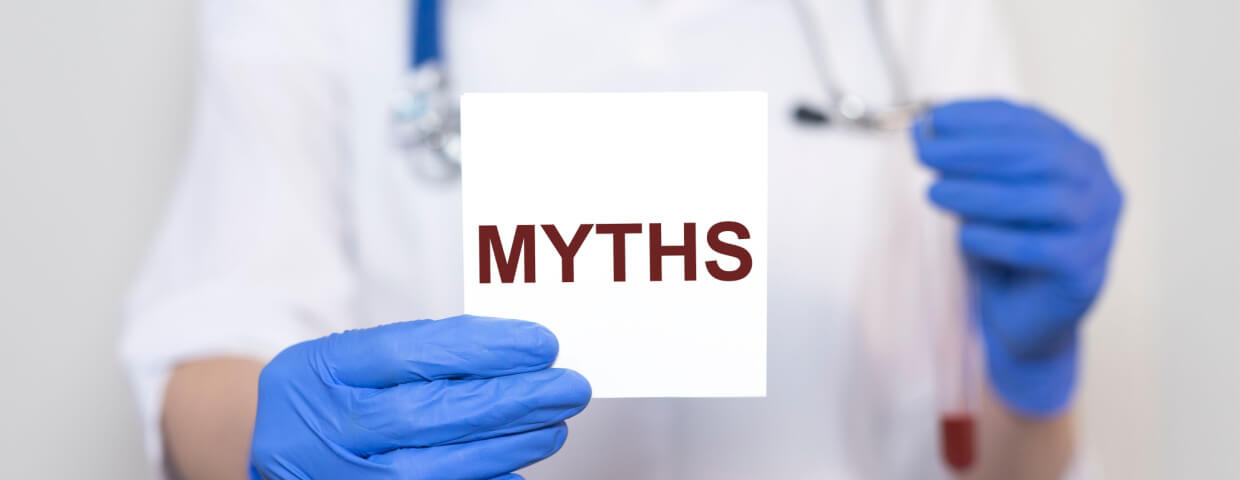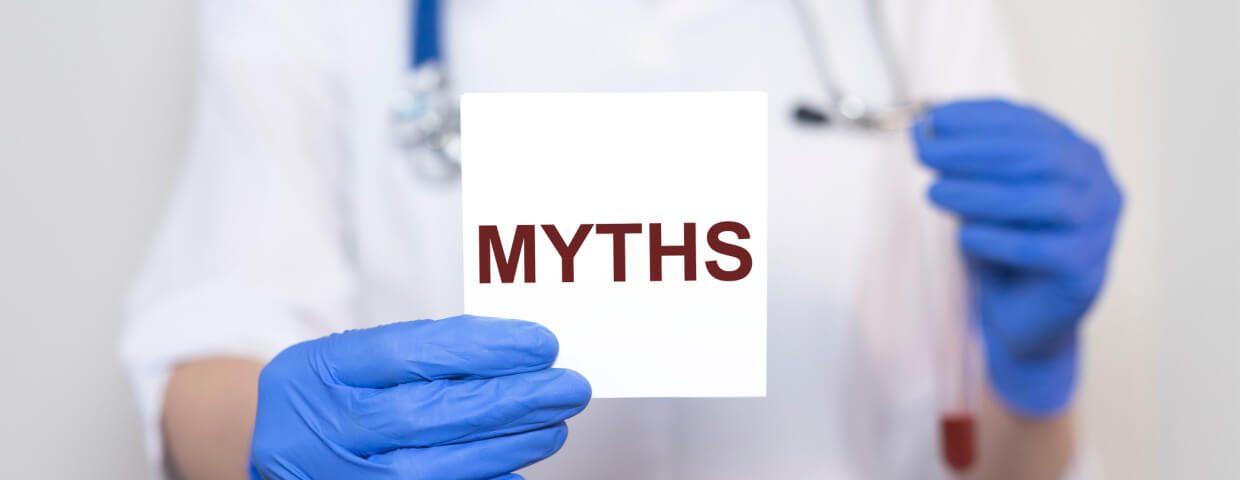
Fad diets come and go, but many simple "facts" tend to stick around through them all. Here's a look at four popular and persistent ideas around nutrition that are actually myths.
Myth #1: Sea salt is a healthier version of regular salt
Everyday table salt comes from a mine and contains roughly 2,300 milligrams of sodium per teaspoon. Sea salt comes from evaporated seawater, and it also contains roughly 2,300 milligrams of sodium. That makes them, well, roughly identical.
Advocates point to the fact that sea salt also contains other compounds like magnesium and iron, but in truth, these minerals exist in trace amounts. To obtain a meaningful dose, you’d have to take in extremely high and potentially dangerous levels of sodium.
What’s more, traditional table salt is regularly fortified with iodine, which plays an important role in regulating the hormones in your body. Sea salt, on the other hand, gives you virtually zero iodine. The bottom line is this: If switching from table salt to sea salt causes you to consume even one extra granule, then you’ve just completely snuffed out whatever elusive health boon you hope to receive. Plus you’ve wasted a few bucks.
Myth #2: Energy drinks are less harmful than soda
Energy drinks like Red Bull, Monster, and Full Throttle attempt to boost your energy with a cache of B vitamins, herbal extracts, and amino acids. But what your body’s going to remember most (especially around your waistline) is the sugar in these concoctions: a 16-ounce can delivers as much as 280 calories of pure sugar, which is about 80 calories more than you’d find in a 16-ounce cup of Pepsi.
What’s more, a University of Maryland study found energy drinks to be 11 percent more corrosive to your teeth than regular soda. So here’s the secret that energy drink companies don’t want you to know: The only proven, significant energy boost comes from caffeine. If you want an energy boost, save yourself the sugar spike and drink a cup of coffee.
Myth #3: Diet soda is harmless
The obesity-research community is becoming increasingly aware that the artificial sweeteners used in diet soda—aspartame and sucralose, for instance—lead to hard-to-control food urges later in the day.
One Purdue study discovered that rats took in more calories if they'd been fed artificial sweeteners prior to mealtime, and a University of Texas study found that people who consume just three diet sodas per week were more than 40 percent more likely to be obese. Try weaning yourself off by switching to carbonated water and flavoring with lemon, cucumber, and fresh herbs.
Myth #4: Low-fat foods are better for you
As it applies to food marketing, the term “low fat” is synonymous with “loaded with salt and cheap carbohydrates.” For instance, look at Smucker’s Reduced Fat Peanut Butter. To replace the fat it skimmed out, Smucker’s added a fast-digesting carbohydrate called maltodextrin. That’s not going to help you lose weight.
A 2008 study in the New England Journal of Medicine found that over a 2-year span, people on low-carb diets lost 62 percent more body weight than those trying to cut fat. (Plus, the fat in peanut butter is heart-healthy monounsaturated fat—you’d be better off eating more of it, not less!)
Looking for safe and effective weight loss solutions? Contact transformyou to schedule your free consultation with one of our licensed physicians.
Read next

How Peptides May Support Brain Health and Cognitive Function
By Dr. Robb Bird

How Weight Loss Impacts Women’s Health
By Dr. Robb Bird

Is Semaglutide the Best Option for Medical Weight Loss in Tempe, AZ
By Dr. Robb Bird
Medically reviewed by Dr. Robb Bird, NMD FAARM
Medical Director, Transformyou
